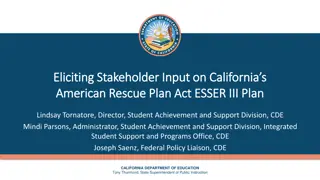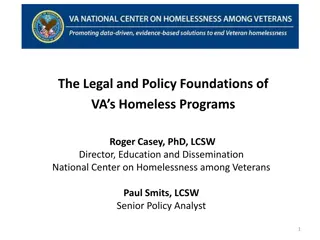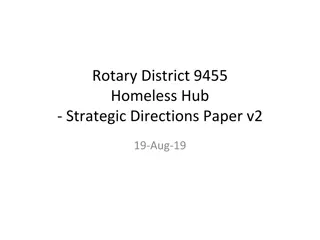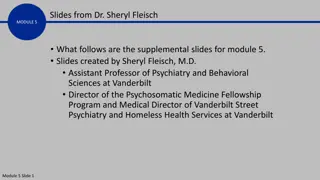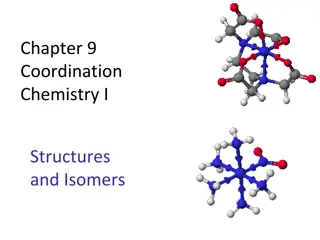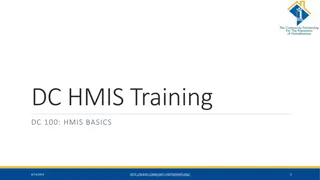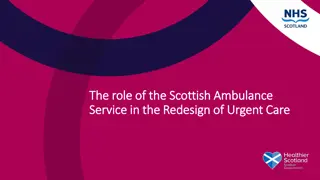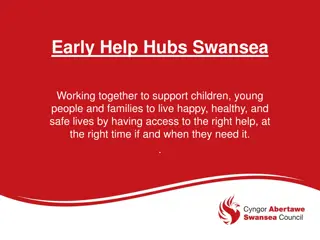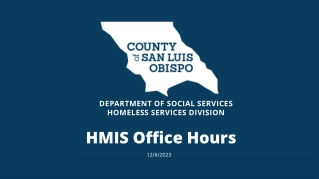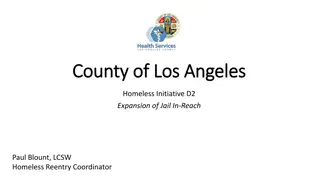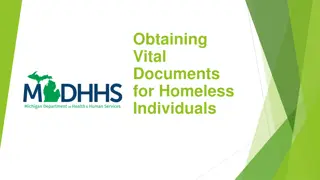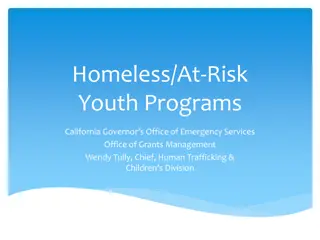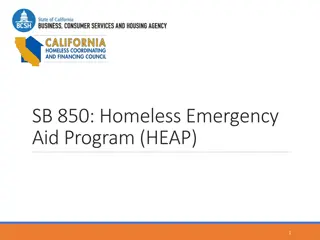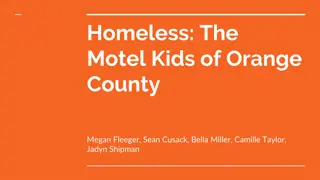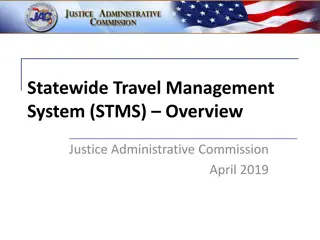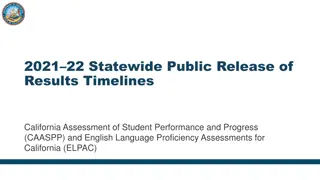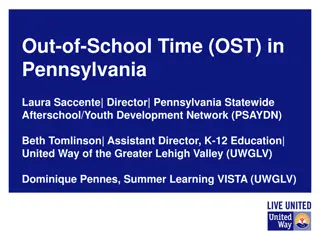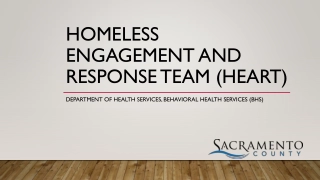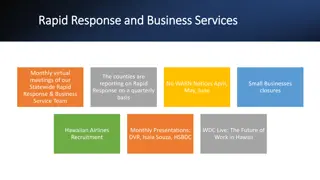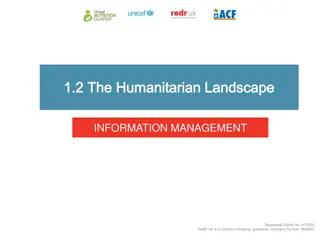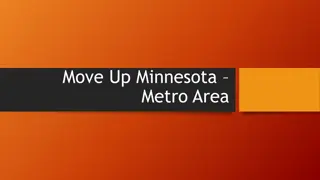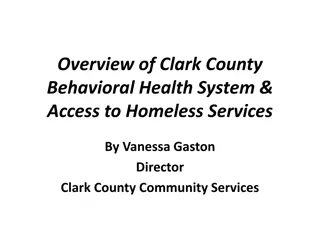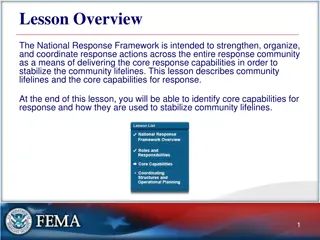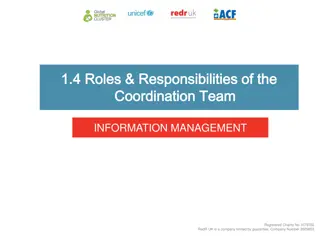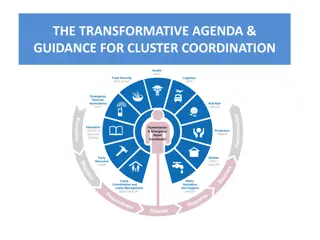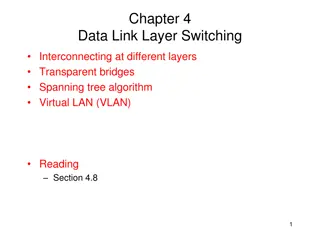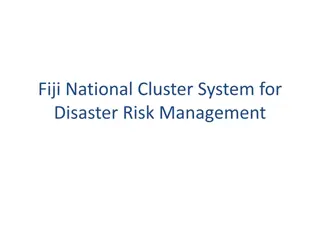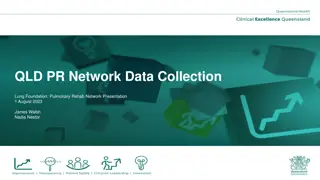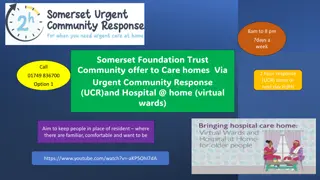Redesigning Statewide Homeless Response System Hubs for Improved Coordination
A redesign initiative is underway in Maine to enhance the homeless response system by addressing challenges such as inconsistent collaboration, reliance on shelters, and lack of permanent housing options. Key takeaways focus on the need for data-driven, accountable, person-centered design grounded in Housing First principles. The new system features three levels with specific memberships and roles aimed at improving access, assessment, prioritization, and coordination for homeless individuals.
Download Presentation

Please find below an Image/Link to download the presentation.
The content on the website is provided AS IS for your information and personal use only. It may not be sold, licensed, or shared on other websites without obtaining consent from the author. Download presentation by click this link. If you encounter any issues during the download, it is possible that the publisher has removed the file from their server.
E N D
Presentation Transcript
Statewide Homeless Response System Redesign Hubs
Homeless Response System Homeless Response System - - 2020 2020 Loose network of independently operated shelter providers Loose network of independently operated shelter providers inconsistent collaboration inconsistent collaboration between them between them Service center municipalities Service center municipalities primarily Portland and Bangor the default destinations for folks from areas with no/limited the default destinations for folks from areas with no/limited shelter services shelter services Inconsistent collaboration between systems/providers in different Inconsistent collaboration between systems/providers in different areas around the state. areas around the state. COVID hit COVID hit we knew we needed a regionalized system of we knew we needed a regionalized system of coordination of services. coordination of services. Statewide Homeless Council and MaineHousing partnered with Statewide Homeless Council and MaineHousing partnered with consultants from CSH to redesign the homeless response system. consultants from CSH to redesign the homeless response system. primarily Portland and Bangor
Key Take-Aways Informing Re- Design Reliance on shelter as the initial front door Most people enter from a setting where a short term intervention could prevent or end homelessness Low number of long term stayers across the system Over use of interventions with the poorest outcomes (e.g., ES) There is a lack of permanent housing options on the back end but once in housing, returns to homelessness are low - 7% within first six months 3
Key Components of the Redesign Data Driven and Accountable Person Centered Design Grounded in Housing First Balances statewide standards with a tailored, localized response Addresses Race Equity 4
Three Levels of the System Design Systems-level policy recommendations Membership: Voting Members, EDs, State Agency Leadership, People With Lived Experience Statewide Homeless Council and COC Program, advocacy and policy-level work Membership: Regional Reps and Senior/Executive Leadership, People With Lived Experience Regional Homeless Councils Access, Assessment, Prioritization and Coordination for homeless response system; community level dashboards Membership: Housing Navigators and Direct Service Staff Local Service Hubs
Service Hub Structure Hub 1: York Hub 2: Cumberland Hub 3: Midcoast: Sagadahoc, Knox, Lincoln, Waldo and Towns of Brunswick and Harpswell Hub 4: Androscoggin Hub 5: Western: Oxford, Franklin and Towns of Livermore and Livermore Falls Hub 6: Central: Somerset and Kennebec Hub 7: Penquis: Penobscot and Piscataquis Hub 8: Downeast: Washington and Hancock Hub 9: Aroostook
Provide the local foundation for the roll-out and operations of Coordinated Entry Coordinated Entry Point of Access Diversion, Triage and Assessment Prioritization maintain BNL Referral - Housing matching and case conferencing Role of the Service Hubs Support regional coordination and resource alignment Community level dashboard to track data to improve performance
Service Hub Coordinators Service HUB HUB Coordinator HUB 1 - York TBD HUB 2 - Cumberland TBD HUB 3 - Midcoast Maine Sagadahoc, Knox, Lincoln, Brunswick & Harpswell HUB 4 - Androscoggin HUB 5 - Western Maine Oxford, Franklin, Livermore and Livermore Falls HUB 6 - Central Maine Somerset and Kennebec HUB 7 - Penquis Penobscot and Piscatiquis HUB 8 - Downeast Maine Washington and Hancock Amy Holland Julia Kimball Emily Meade Nicole Frydrych Jennifer Weatherbee Jace Farris HUB 9 - Aroostook Shirley Caron
Shelters Outreach/PATH Supportive Housing Providers CAP Agencies General Assistance Child and Family Services Public Housing Authorities Hospital/Healthcare Community Care Teams County Jail and Prison Discharge Planners Mental Health Service Providers Cultural Broker Organizations Who should be at the table in each HUB?
IMPLEMENTATION PLAN Contracted with Community Solutions Built for Zero Initiative Built for Zero is a rigorous national change effort designed to help a core group of committed US communities end chronic and veteran homelessness.
Implementing a Functional HUB and CES System. Phase 1 Establish Service HUB Teams Nov - Dec 2021 Phase 2 Phase 3: BfZ HUB Teams Begin working to achieve Quality Data April 2022 -> Hire Hub Coordinators HUB CES Implementation March 2022 - ongoing February 2022: Launch BfZ Maine State Team - Clearing the Path for Local Teams


